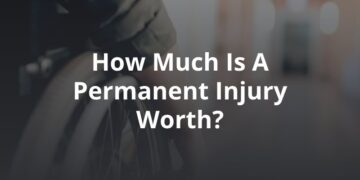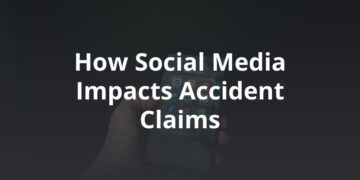If you’ve recently experienced a car accident, you know that the stress from medical bills can be overwhelming. Fortunately, financial compensation can offer at least a bit of relief. If you’ve settled a car accident case with a third-party insurance company, you’re probably wondering about how tax season will affect your settlement or judgment. Here is everything you need to know about paying taxes on the money you receive from a car accident settlement.
Do I have to pay taxes on a car accident settlement?
In most cases, the answer is no, you will not be required to pay taxes on your car accident judgment or settlement. However, there are exceptions to this rule, so it really depends on the circumstances of your settlement or judgment — which are generally viewed as the same for tax purposes.
Which parts of my settlement are tax deductible?
The majority of settlements and judgments are granted only for 1) money received for injuries and medical expenses and 2) money received for vehicle damage. Here’s a breakdown of both:
- Settlement for injury and medical expenses. This is known as general and compensatory damages, which cover medical bills as well as pain and suffering. This type of settlement or judgment offers financial relief for physical injuries, illnesses, and medical expenses related to your accident, and they are not taxable, since they exist to reimburse you for your out-of-pocket losses. An important note for tax time, however, is that according to IRS regulations, you can only deduct medical expenses that are more than 10 percent of your adjusted gross income, or 7.5 percent if you’re 65 years of age or older.
- Settlement for vehicle damage and repair. Any financial aid you receive for auto damage or repairs resulting from the accident is not taxable. This also applies to any reimbursements you received for a rental car while your vehicle was being repaired.
Which parts of my settlement are taxable?
While most car accident settlements or judgments are not taxable, there are two exceptions. If either of these apply to you, it’s advisable to contact your tax professional and your personal injury lawyer to help guide you through the process.
- Lost wages. If your settlement included compensation for lost income, this money is taxable, since you would have earned it had the accident not occurred.
- Punitive damages. It’s rare that punitive damages are offered as part of a car accident settlement or judgment, but it does happen. Punitive damages will be offered in extreme cases where a defendant acted in a malicious or deliberate manner. They exist to punish the defendant and discourage similar behavior in the future. If you are the recipient of punitive damages in your personal injury case, these damages are almost always taxable.
If you qualified for lost wages or punitive damages, you will be required by the Internal Revenue Service to pay taxes on either or both of these reimbursements in your annual tax filing. It is important to remember that not paying taxes on money that is required in your annual return can have serious consequences. Although your lawyer can help you understand your financial options following an accident, we at FVF are not tax professionals. Therefore, if you have any questions or concerns about whether or not you need to pay taxes on your compensation, it is strongly advised to seek the help of a tax professional or accountant.
FVF is passionate about helping victims like you to secure the fair compensation they deserve. We are here to guide you through the aftermath of an accident step by step, making the process simple and straightforward. Contact us today—we’re just a call or email away from helping you make the recovery from your accident less painful.









